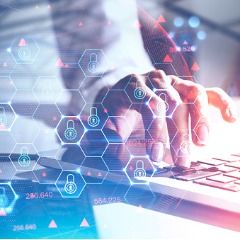 Resources
Resources
At ForensicsColleges, we want to connect students, prospective students, and professionals to the multitude of resources available online in order to stay up-to-date on recent news and trends within the online forensics community. From national news in the industry, cold cases in kidnapping, and top websites for different areas of forensic study, you can always find what you’re looking for here in our resources section.
Further your forensic knowledge and help continue the advancement of forensic research today. For additional information and up-to-date news, follow us on Twitter at @ForensicsEd.

Fire Prevention Week: An Expert Interview & Advocacy Guide
Fire safety experts confirm that while we live in uniquely challenging times, there are simple things people can do to protect their loved ones and property from home fires, wildfires, and the hazardous air quality that smoke creates.

Both science and justice are, in essence, the pursuit of truth. Perhaps nowhere do those two areas come together more directly than in forensic science. A critical element of the justice system, forensic scientists examine and analyze evidence in order to assist in investigations that ultimately may end up in court.

In 1972, the outcome of Furman vs Georgia put a nationwide moratorium on the practice of capital punishment in the United States. Three years later, however, Gregg vs Georgia gave states the right to reinstate the death penalty upon fulfillment of certain conditions. In the 46 years since that ruling, a number of cases have challenged the use of capital punishment, but it has been upheld by the Supreme Court allowing for the execution of over 1,500 people since 1976.

Learn more about the career outlook for forensic document examiners, as well as who is hiring and where. Understand how to become a handwriting analyst and forensic document examiner.

The Ultimate Guide to Forensic Science Salaries (2021-22): By Location, Field, and Experience
Forensics is the use of techniques or scientific tests in order to detect crime, and this broad field encompasses professionals from lab technicians to IT professionals to doctors and detectives. Work can be performed in a lab, out in the field, in an office, or one-on-one with clients or victims. Given the wide variety of jobs in forensics, salaries vary widely.

There are many different ways to measure the size of a cybersecurity hack, such as money, impact, or reach. Below you’ll find five cybersecurity hacks that are so big, in one way or another, that they changed the world.

While the US has only 5 percent of the world's population, it accounts for nearly a quarter of its prisoners. There are nearly 2.3 million people in our nation's prisons and jails. With 655 inmates for every 100,000 people, the U.S. is by far the leader in incarceration among Western countries.

What Does “Defund the Police” Actually Mean?
“Defunding the police” means reallocating some portion of a police budget to community services such as housing, health, counseling, and education. These forms of community service have been proven to lower crime rates while also boosting public wellbeing. Unfortunately, the phrase “Defund the Police” has been subject to politicization and misinformation, and sometimes misconstrued with a call to abolish police departments.


